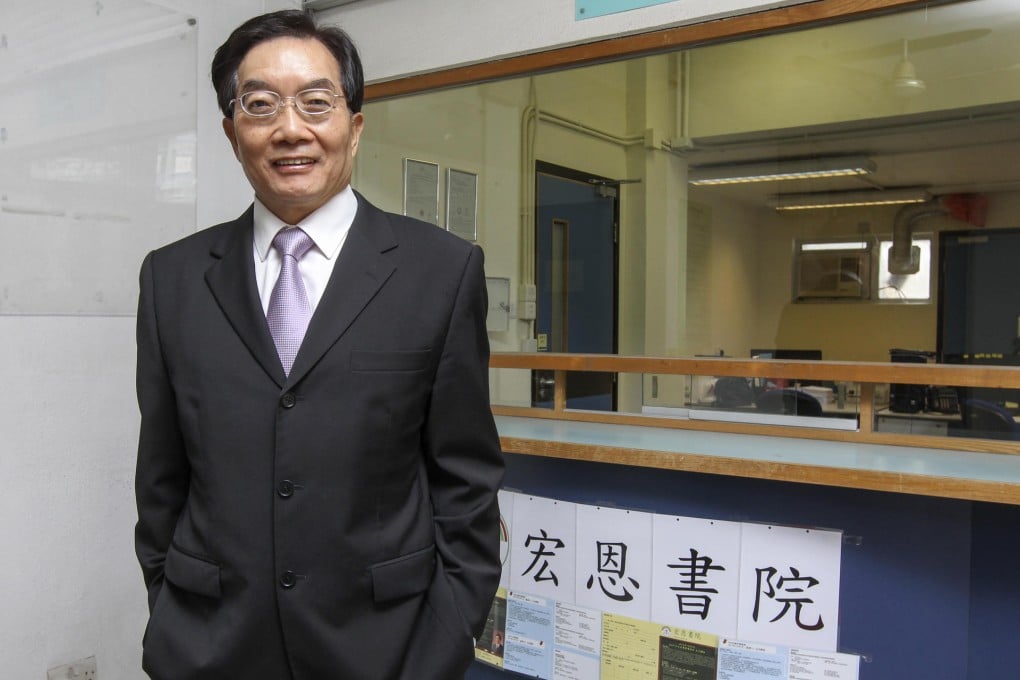Former Hang Seng educator plans school for the underprivileged

A luminary in the private higher education sector, former college head Chui Hong-sheung could have gone into retirement, basking in the satisfaction of his career achievements.
Instead the 64-year-old has remained active, ready for another uphill battle.
The former head of Hang Seng School of Commerce, a former matriculation college, Chui oversaw its transition into a private-degree-granting institution, renamed as the Hang Seng Management College in 2010. The Sha Tin-based college is now offering five degree programmes and has about 4,000 students.
It seemed mission accomplished for Chui. But there is still a lot on his plate.
Having left Hang Seng last year, Chui has turned his attention to setting up the territory's first private Christian university, with plans for its first intake of 150 students in 2015. The college is tentatively named Gratia Christian College, and will be in Shek Kip Mei.
Chui is prepared to apply for other sites from the government to create a bigger campus. On top of the HK$100 million pledged by a local donor, it aims to seek an endowment fund of at least HK$200 million.